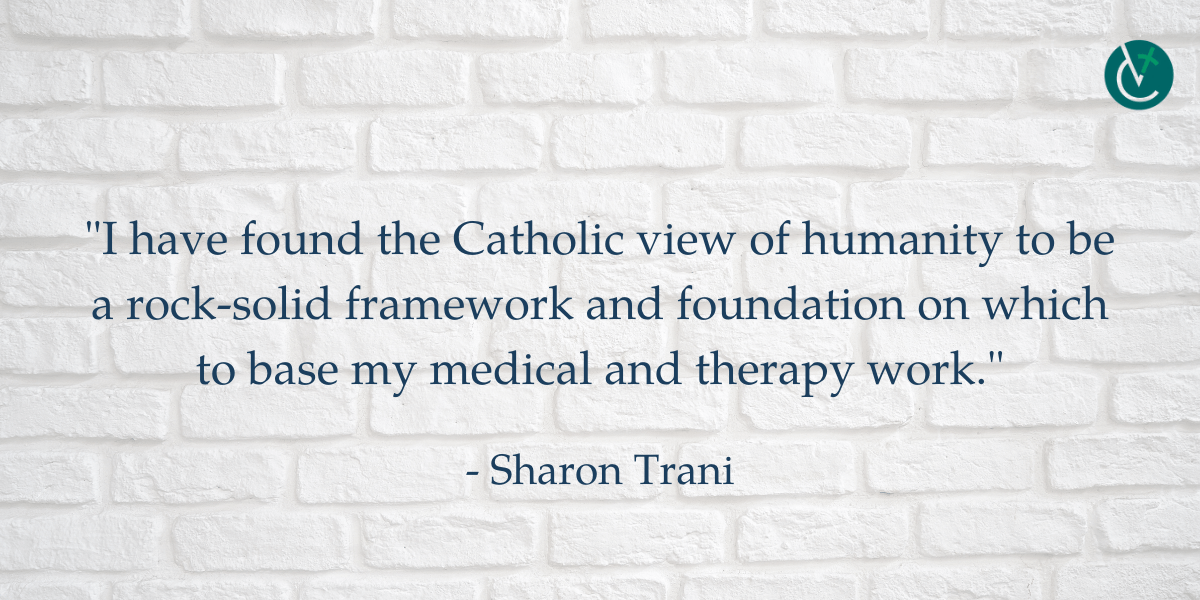
A road map by which to achieve satisfaction, fulfillment
Medical research shows that 70-80 percent of physical ailments are rooted in emotional, relational and spiritual dysfunction. When people are stressed, emotionally wounded, abandoned, angry, resentful or confused, they develop issues like insomnia, stomach ulcers, high blood pressure, autoimmune disorders, etc.
Humans are much more than physical beings; they have an innate yearning to relate to and connect with others. I always wanted to be a nurse and am grateful for the deeply satisfying work I have had as a nurse practitioner and marriage and family therapist. The ability to work at caring for the whole person is such a sound platform from which to operate. And I have found that when the patient is open to it, bringing in the spiritual dimension adds a major source of healing.
I converted to Catholicism in my late thirties, and not only was it a personally profound journey, but I have found the Catholic view of humanity to be a rock-solid framework and foundation on which to base my medical and therapy work. Our creed and faith speak to the deep love of our creator and savior for each of us, and more than anything we all ache to be loved and to love.
I alluded earlier to our yearning for connection and intimacy. As Catholics, we understand that our highest calling is for intimacy with one another and God. Our faith talks about our inner desire to be the best person we can be as well as our predilection to be selfish and make dreadful mistakes, thus giving us an understanding of that conflict we deal with.
Our faith gives us a “reset button,” the ability to forgive and be forgiven, to grow ourselves, to have the healing balm of God’s love and wisdom applied to our messes.
And messes there are, those we have made and those others have made for us. Some suffer from tremendous abuse at the hands of others. And in therapy we rightly explore and acknowledge the trauma and injustice, the losses and the grief. But as a priest said to a patient of mine, “Give up the hope of a better past” — perhaps a bit harsh, but that compassionate and realistic priest knew that God can and will fill up all “empty buckets,” that He loves unconditionally and totally.
Our culture today would have us think that we will find satisfaction in pursuing material wealth and career, in putting ourselves first, in satisfying every desire. Many around us will mock religion and the transcendent, thinking it possible to defy natural law, considering themselves wiser than God.
Perhaps one of the most powerfully loving things God has done is to give us a road map by which to achieve our deepest satisfaction and fulfillment. He knows how we can best achieve happiness; He shows us the way and makes it possible for us to live our lives well, despite the many hardships we may face.
—Sharon Trani, a nurse practitioner, is a marriage and family therapist with Vermont Catholic Charities Inc.
—Originally published in the Spring 2022 issue of Vermont Catholic magazine.

